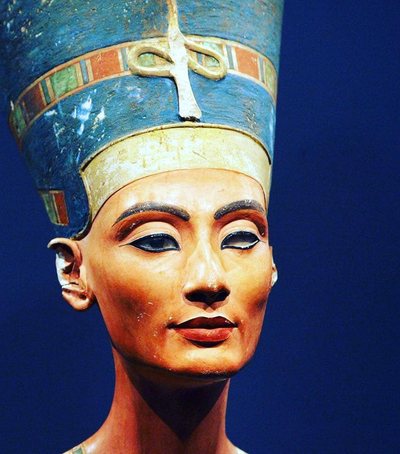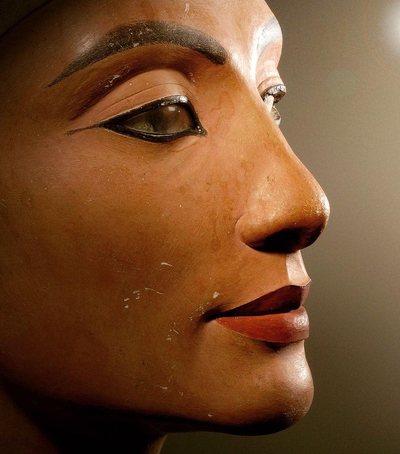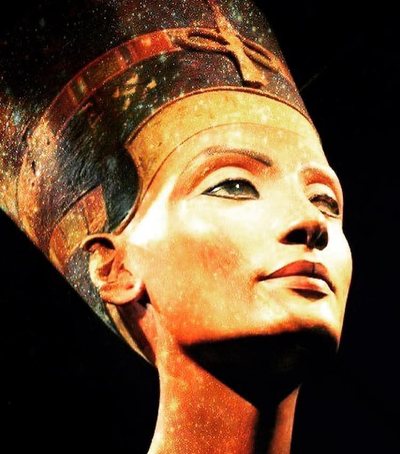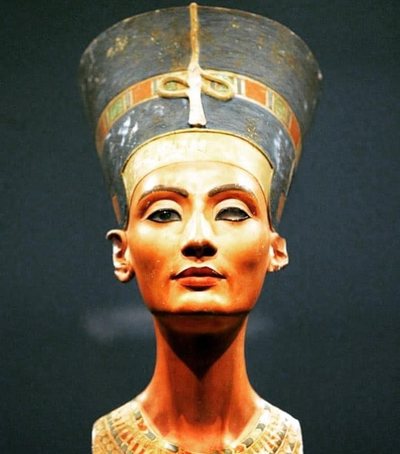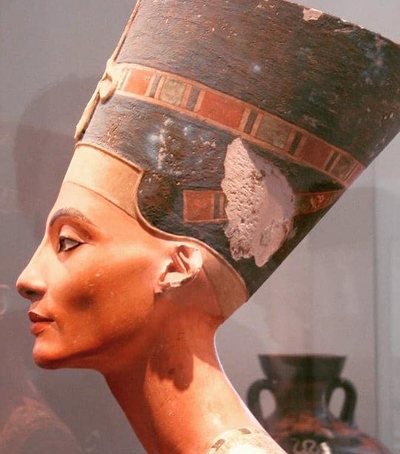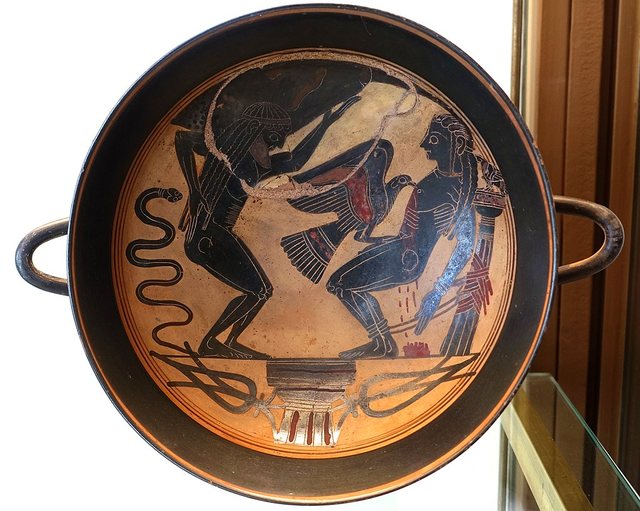
Before the creation of mankind, the Greek gods won a battle against a race of giants called the Titans. Most of the Titans were destroyed, or cast into the eternal hell of Tartarus. But the Tyrant Prometheus, whose name means foresight, convinced his brother Epimetheus to fight with him on the side of the gods. To thank them, Zeus entrusted the brothers with the task of creating all living things. Epimetheus was to distribute the gods' gifts among the creatures.
To some, he gave flight; to others, the ability to move under water, or to run on grass. He gave animals soft fur and sharp claws. Meanwhile, Prometheus shaped the first man from clay. He molded them in the image of the gods, but Zeus decided that they would remain mortal and worship the inhabitants of Mount Olympus, from below.
Zeus thought of humans as submissive creatures, vulnerable to the elements and dependent on the gods for protection. However, Prometheus envisioned these raw creatures with a greater purpose. So, when Zeus asked him how the sacrifices would be made, the cunning Prometheus planned a ruse that would give humans some advantage. He killed a bull, cut it in two, and presented it to Zeus.
On the one hand, he hid the delicious meat and skin from the lower part of the animal. On the other hand, he hid the bones under a thick layer of fat. When Zeus chose the ration that seemed best for himself, he was enraged by Prometheus' trick. Enraged, Zeus forbade the use of fire on Earth, whether for cooking meat or for any other purpose.
But Prometheus refused to have such a source denied to his creation. So he climbed Mount Olympus to steal fire from the workshop of Athena and Hephaestus. He hid the flame in a hollowed-out fennel stalk and brought it down to humans. This gave them the power to harness nature for their own benefit and ultimately dominate the natural order. With fire, humans could provide themselves with food and warmth.
But they could also produce weapons and wage war. Prometheus' flames served as a catalyst for the rapid advancement of civilization. When Zeus saw this spectacle, he realized what had happened. Prometheus had once again touched his pride and destroyed Zeus's authority. Enraged, Zeus imposed a brutal punishment.
Prometheus would be chained to a rock for eternity. Every day, he would be visited by a raven that would tear out his liver, and every night his liver would regenerate from scratch, only to be attacked again the next morning. Although Prometheus remained in eternal agony, he never regretted his act of rebellion. His resilience in the face of oppression made him a beloved figure in mythology.
He was also celebrated for his mischievousness and inquisitive spirit, and for the knowledge, progress, and power he brought into the hands of man. He is also a recurring figure in art and literature. In Percy Bysshe Shelley's lyrical play, 'Prometheus Unbound,' the writer imagines Prometheus as a romantic hero who escapes and continues to spread empathy and knowledge.
Of his protagonist, Shelley wrote, 'Prometheus is the highest perfection of a moral and intellectual nature, impelled by the purest and truest motives to the best and noblest ends.' His wife Mary envisioned Prometheus more as a warning figure and titled the novel 'Frankenstein: The Modern Prometheus.' This suggests the harm of corrupting the natural order and its relevance to the ethical questions surrounding science and technology today. As a hero, rebel, or trickster, Prometheus remains a symbol of our capacity to harness the powers of nature, and ultimately, he reminds us of the potential of our individual actions to ignite the world.
TED-ED
Source: https://www.youtube.com/watch?v=U_u91SjrEOE

